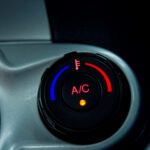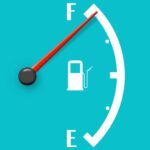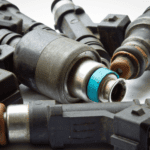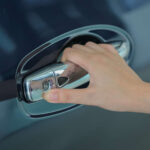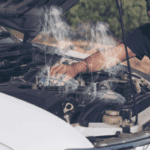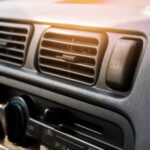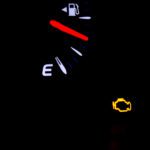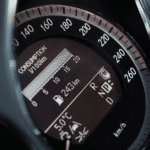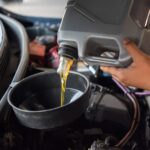Your car’s paint has to go through a lot, and maintaining it can be a chore. But at the end of the day, your car’s paint job is more than just aesthetics; it’s a shield against the elements. However, amidst your efforts to maintain it, a spillage at the gas station might seem harmless. Unfortunately, many things can damage your car’s paint without you knowing it, and in this instance, a gasoline spillage will harm the car paint if not cleaned up quickly.
The troublesome thing about gasoline is that it doesn’t cause an immediate impact but will destroy the car paint in the long term. In this article, I’ve explained more about what happens when gasoline spills onto car paint and how to clean it correctly.
Does Gasoline Damage Car Paint?
While seemingly innocent at first glance, gasoline can wreak havoc on your car’s paint job if left. When gasoline comes into contact with a car’s paint, it starts a series of chemical reactions. Gasoline is a solvent capable of breaking down substances, i.e., car paint.
It’s not the gasoline itself but the impurities that pose the greatest threat. These impurities, which vary depending on the source and refinement process, can include particles that act as abrasives, worsening the damage caused to the paint.
Also, gasoline has a knack for lingering on surfaces. As it sits on your car’s paint, it penetrates the protective clear coat and chemically interacts with the paint layer underneath. This can lead to staining, discoloration, and even paint deterioration. The longer gasoline remains on the paint, the worse its effects become, eventually leading to irreversible damage.
Does Gasoline Remove the Clear Coat?
Gasoline can compromise the clear coat, a vital protective layer for your car’s paint, causing discoloration and exposing the paint.
When gasoline comes into contact with the clear coat, it causes it to soften and break down, weakening it. A weakened clear coat fails to protect the paint, leaving it vulnerable to further damage from UV rays, moisture, and other contaminants.
One last thing to note is the effects of gasoline spills on the clear coat may vary depending on different factors. This includes the level of impurities in the gasoline, the length of time it was on the clear coat, and the quality of the clear coat. While minor spills may only cause surface discoloration that can be resolved using proper cleaning methods, prolonged exposure can lead to more severe damage. In such cases, it may be necessary to seek professional assistance to repair or replace the affected clear coat.
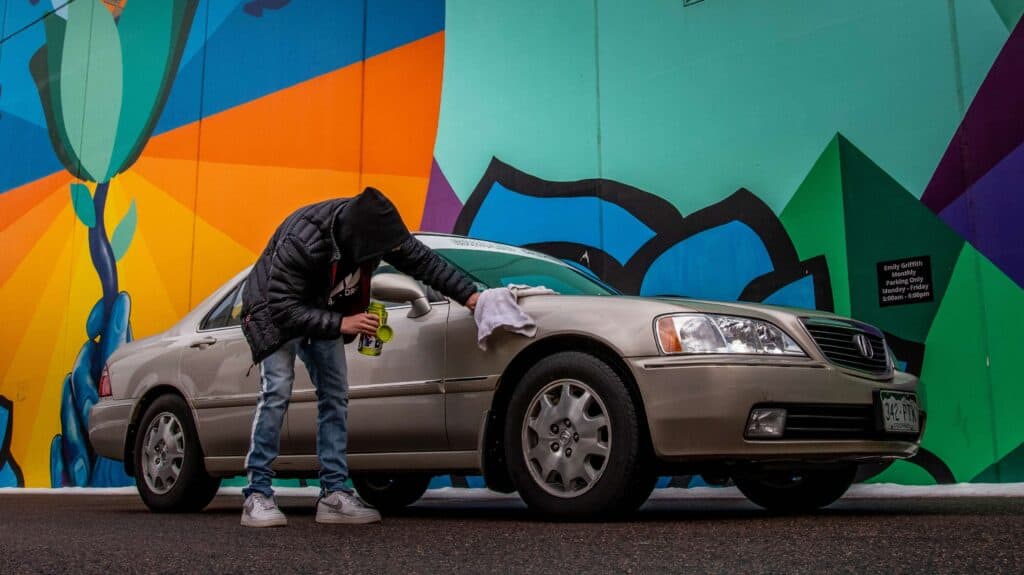
How to Remove Gasoline From Car Paint
Prompt action is crucial to minimize the risk of lasting damage. Gasoline may evaporate quickly, but its residual effects can linger, unseen to the eye. When tackling a gasoline spill, using the right tools and techniques is important to avoid adding further damage. Here are some steps to follow:
- Begin by blotting the affected area with a soft microfiber cloth or sponge to absorb as much gasoline as possible. Avoid rubbing or scrubbing, which can spread the gasoline and worsen the staining.
- Use a specialized automotive paint cleaner to dissolve and remove gasoline residue from car paint. Apply the cleaner to the affected area and gently blot or wipe away the remaining gasoline, taking care not to scrub aggressively.
- Once the gasoline spill has been removed, give the area a final wipe-down with a clean, damp cloth microfibre to remove any remaining residue. Dry the area thoroughly.
If the gasoline spill has caused visible damage to the paint or clear coat, such as discoloration or bubbling, do not carry out any of the above. Instead, seek professional assistance. A skilled detailer or auto body shop can assess the extent of the damage and recommend appropriate repair measures, which may include spot refinishing or repainting the affected areas.
Can Gasoline Stain a Car’s Paint After It’s Been Removed?
Providing the spilled gasoline spillage was cleaned up quickly, it’s rare to see staining. However, if the spillage was allowed to sit on the paint for an extended period, the staining may still be seen even after removing and cleaning it.
To address lingering stains or discoloration after removing the gasoline from your car’s paint, you may need to use a machine polisher to remove some of the clear coat. I strongly recommend speaking to a detailer about this. You can wreck car paint trying to machine polish a car.
Frequently Asked Questions
What Happens If You Spill Diesel On Your Car Paint?
Spilled diesel on your car can harm its paint job. Quickly wipe it with a clean cloth and use mild soap and water to clean the area. Avoid harsh chemicals. If the spill caused damage, seek professional repair.
Does Water Wash Gasoline Off Car Paint?
Water alone is not enough to remove gasoline residue from car paint. Use specialized cleaners designed to dissolve and remove gasoline safely. Follow the manufacturer’s instructions and use caution to avoid damaging the paintwork. Consider using supplementary cleaning tools like microfiber cloths or detailing brushes.
How Can You Protect Your Car Paint?
Wash your car regularly and apply wax or sealant to maintain its paint. Avoid harsh chemicals and tools that may damage the paint, and park it in a covered area to protect it from direct sunlight and harsh weather.
Final Words
Gasoline spills pose a significant threat to your car’s paintwork, with the potential to cause staining, discoloration, and deterioration of the clear coat if left untreated.
To minimize the risk of damage from gasoline spills, prompt action is crucial. Clean spills promptly using specialized automotive cleaning products and techniques, and avoid using water alone, as it can worsen the problem. By taking proactive measures to address gasoline spills, you can protect your car’s paintwork and ensure it remains looking its best for years to come.
